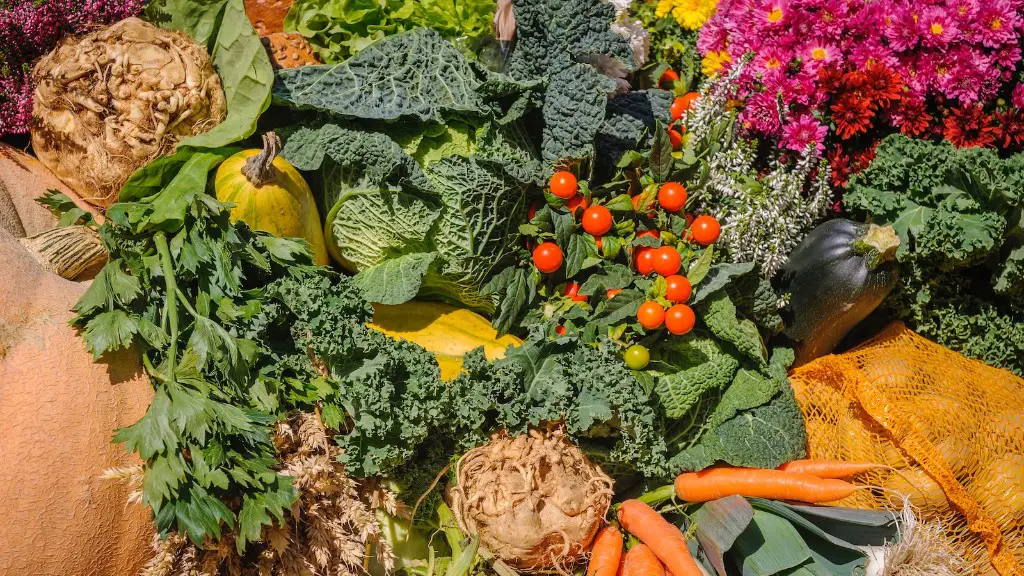Agriculture is an incredibly important activity, as it provides nourishment to people around the world. It is essential to understand what general agriculture entails in order to appreciate its importance. Generally speaking, general agriculture involves growing crops and raising animals on a large scale, as well as managing the land in order to optimize yields. It also includes water management, soil conservation and crop rotation, in addition to dealing with pests and diseases. Furthermore, farmers must understand the basics of marketing and economics, such as pricing and supply chain networks. Finally, modern agricultural practices also involve adopting environmentally friendly practices to ensure sustainability.
Seed Selection and Soil Preparation
Before a crop can be planted, the right variety of seed needs to be selected according to the expected climate and soil type. Next, the soil must be prepared in order to ensure that the crop can thrive; this includes tilling, adding fertilizer and other materials, and ensuring that drainage and irrigation systems are in place. It may also require dealing with weeds in a manner that prevents further growth. Furthermore, soil testing is essential in order to understand the nutrient content of the soil and take corrective steps, if necessary.
Growing and Harvesting Crops
Once the land has been prepared, it is time for planting. Farmers usually practice meticulous crop rotation, meaning that a set of crops are grown in a specific order in the same field. Planting is one of the most crucial duties and is done with great care. Every crop needs to be monitored consistently, in order to identify signs of disease or any adverse weather, and to ensure that it is watered properly. Once these steps are completed, the crops still need to be harvested and processed into a usable form.
Animal Husbandry and Slaughtering
Animals are also raised to provide food and other resources. Animal husbandry involves providing food and water to the animals, as well as ensuring that they stay healthy. Animals may need to be vaccinated against certain diseases, and proper shelter must be provided. Animals may also need to be transported to slaughterhouses for processing. Additionally, good agricultural practices must be followed in order to avoid causing unnecessary suffering for the animals.
Marketing and Economics of Agriculture
Once the crops have been harvested and the animals have been slaughtered, farmers need to deal with marketing and the economics of the produce. This involves understanding the supply chain networks and the pricing strategy for the produce. Additionally, the demand and supply of the products in the local market must be monitored in order to ensure optimal prices. Furthermore, farmers must also understand the taxation laws relevant to their goods or be able to employ advisors to assist them in this regard.
Pest and Disease Management
Pests and diseases can threaten the entire crop, so they need to be managed effectively. A range of chemical, biological and physical methods are used to control pests and diseases, with the careful selection of methods being critical to success. Pests and diseases must also be monitored constantly to ensure that no outbreaks occur. Furthermore, some preventive measures need to be taken to ensure that animals and crops stay healthy.
Environmental Sustainability
No agricultural activity is complete until sustainable practices are adopted. Modern agriculture requires reducing the use of synthetic fertilizers and pesticides, and instead adopting organic alternatives. In addition, renewable sources of energy should be utilized, such as solar and wind power. Furthermore, water pollution must be minimized by harvesting and utilizing rainwater, if possible. Finally, farmers should employ crop rotation in order to maintain the fertility of their soils.
Maintaining Records and Compliance Regulations
In addition to all the above activities, farmers must also maintain records of their activities and comply with relevant regulations. In some countries, farmers may even need to keep detailed records of the inputs and outputs in order for the government to inspect their operations. Furthermore, farmers may need to negotiate contracts and prices with wholesalers and retailers in order to earn a decent profit from their produce. Finally, farmers should also become cognizant of labor regulations, as there may be laws that govern the hiring and firing of workers.

